- Wednesday, 25 February 2026
Computer education in public schools still a far cry
Kathmandu, Oct. 10: Mahabir Pun, Minister for Education, Science, and Technology, took to social media stating that computer education would be mandatory in all public schools, and that each school would require at least one computer teacher.
Minister Pun also urged the opening of vacancies for computer teachers in all schools.
Many of his followers reacted positively to his Facebook status, praising his efforts to improve school education.
However, questions remain about whether his ambitious project is feasible. Although Minister Pun’s intention is commendable, some experts argue that his plan is unrealistic.
Did the Education Ministry conduct a feasibility study on this proposal? And does the Ministry have sufficient budget for such a project? Many questions have arisen about how realistically this plan can be implemented by an election-time government.
In response to the Minister’s ambitious plan, an expert team—including Kedarbhakta Mathema, Sushan Acharya, Balchandra Luitel, Hari Prasad Lamsal, Minakshi Dahal, Rajendra Dahal, Teeka Bhattarai, Babukaji Shrestha, and Bidhyanath Koirala—submitted a suggestion letter providing significant ideas to Minister Pun.
Bidhyanath Koirala, an education expert, said that the Minister’s vision excited him. However, Minister Pun did not present a clear process or method.
“Whatever he said was quite important, but he didn’t reveal specific methods, funding mechanisms, infrastructure plans, or possible resources. His proposal to offer at least 6,000 teaching positions is quite unrealistic,” said Koirala.
According to Koirala, his team submitted suggestions aimed at improving overall education. A key recommendation was to train existing teachers instead of opening vacancies for new ones.
Furthermore, they suggested forming a group of tech-friendly students and assigning them as intern teachers.
“If there is no electricity or internet, schools can use video recordings,” added Koirala. The expert team proposed various strategies aimed at enhancing education.
Teacher recruitment should be based on the number of students. Teachers should be trained in multidisciplinary and integrated teaching. Additional suggestions included receiving support from neighboring schools and establishing a teachers’ bank at every local level.
According to Shiva Prasad Sapkota, spokesperson for the Education Ministry, only 67 per cent of schools currently have ICT infrastructure.
“As the Minister has experience in science and technology, he is eager to bring innovation to education. We believe the new Minister will introduce something new,” said Sapkota.
Sapkota mentioned that computer education is currently being taught as an optional subject in secondary grades.
The data released by the Ministry shows that only 67 per cent of schools have ICT infrastructure. However, only 26 computer teacher vacancies have been officially filled as of 2025. The remaining schools have managed with local resources or temporary, contract-based teachers, which is not sufficient, added Sapkota.
A few years ago, the National Curriculum Framework-2076, applied by the Education Ministry, had removed compulsory computer education for grades 6 to 8.
However, the subject is now included as a compulsory component under the Science and Technology curriculum.
The optional computer subject for grades 9 and 10 carries a total of 100 marks, 50 per cent theoretical and 50 per cent practical, allowing students to study both aspects equally.
The curriculum covers basic computer knowledge, computer graphics, networking, the internet, web technologies, web management systems, and more.
According to the National Curriculum Framework-2076, there are 42 subjects in the optional first paper and 35 in the optional second paper for grades 9 and 10. Many experts agree that computer science or computer education is undoubtedly necessary in schools.
However, they argue that the initial plan suggested by Minister Pun is not feasible at this time. Instead, they recommend that the government explore alternative and more reliable approaches.
“Digitising education is essential. But the question remains: how can we achieve it? We need to work on more practical methods,” said Koirala.

.jpg)
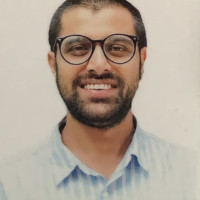
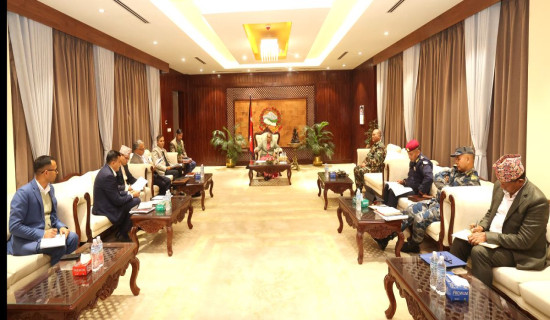
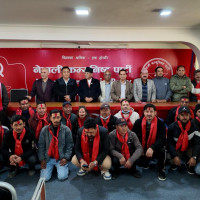

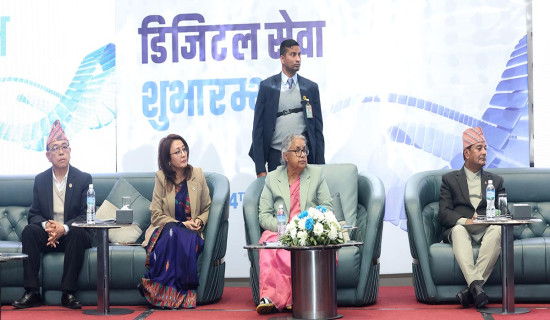
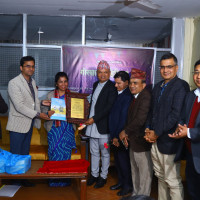

-original-thumb.jpg)

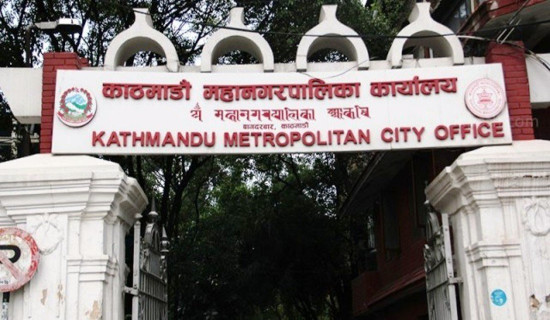

-original-thumb.jpg)


